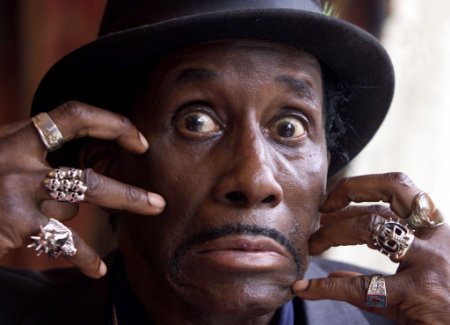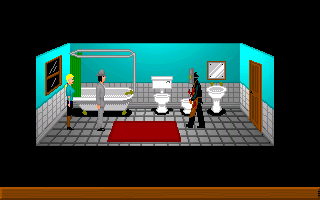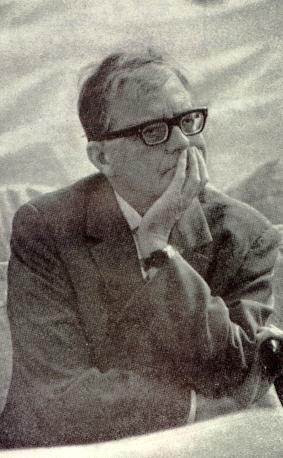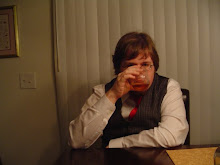 Screamin' Jay Hawkins was, and let's not mince words here, absolutely and utterly insane. A Dionysian drunk, father of about 75 children (no one's quite sure of the number), the former middleweight boxing champion of Alaska, and the only man ballsy enough to record a blues album called Black Music For White People. He also knew a ton of cool people, having toured with Nick Cave and The Clash, befriended Tom Waits, and appeared in Jim Jarmusch's movie Mystery Train (The Mountain Goats also took their name from his song "Yellow Coat").
Screamin' Jay Hawkins was, and let's not mince words here, absolutely and utterly insane. A Dionysian drunk, father of about 75 children (no one's quite sure of the number), the former middleweight boxing champion of Alaska, and the only man ballsy enough to record a blues album called Black Music For White People. He also knew a ton of cool people, having toured with Nick Cave and The Clash, befriended Tom Waits, and appeared in Jim Jarmusch's movie Mystery Train (The Mountain Goats also took their name from his song "Yellow Coat").He was also, sadly, the definitive one-hit wonder. He recorded today's amazing song, "I Put A Spell On You," in 1956, enjoyed a brief burst of fame as the song topped the charts, and then spent the rest of his career regarded as a novelty act (shades of Warren Zevon and his equally Halloween-ready "Werewolves of London"). Most people probably can't even credit him as the original writer and performer of the song.
None of that, however, diminishes the fact that "I Put A Spell On You" is one of the greatest songs ever written. Hawkins, one of the most dynamic singers ever, is in full swing here- bellowing, roaring, crooning, pleading, an utterly demented figure of madness and menace. The band, Hawkins included, are all too drunk to stand, giving the music a loose, chaotic, and staggering feel. More so than any of the covers of it (even the murder-happy Nick Cave's), the original version of this song feels dangerous, staggering at you in an unlit apartment with rubbing alcohol on its breath and what you hope isn't a knife in its hand. It's a song that seems fundamentally wrong, barely hanging-together, and utterly weird. And it's genius.
So, if you've heard any of the more famous versions (I'm looking at you, Nina Simone fans), head over to She'll Grow Back and grab the original, along with a great collection of covers of it. Nick Cave's is brilliant (my second-favorite), Tim Curry's is oddly gentle, and Marilyn Manson's (don't you judge me!) is sadly neglected.









